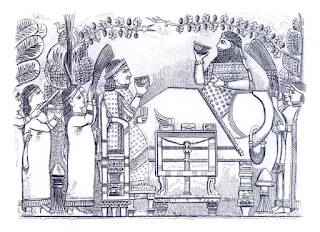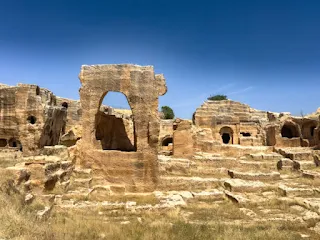Mesopotamia, which means "land between the rivers," is a region in the Middle East that is considered the cradle of civilization. It is here that the earliest cities, governments, and cultures developed, laying the foundation for modern society. In this article, we will explore the Mesopotamia civilization, its history, achievements, and contributions to modern civilization.
Geography and Climate
Mesopotamia is situated in the fertile plain between the Tigris and Euphrates rivers, which flow through modern-day Iraq. The region's fertile soil, abundant water supply, and favorable climate made it an ideal place for early settlers to establish themselves. The climate is hot and dry in the summer, and cool and wet in the winter, allowing for two crops to be grown each year.
History of Mesopotamia
The history of Mesopotamia spans over 3,000 years, from the emergence of the first cities around 3500 BCE to the fall of the Neo-Babylonian Empire in 539 BCE. During this time, several civilizations rose and fell, each leaving their mark on the region.
The Sumerians (c. 4500 - 1900 BCE)
The Sumerians are considered one of the earliest civilizations in the world. They established themselves in Mesopotamia around 4500 BCE and developed a complex system of government, economy, and culture. The Sumerians are credited with several important innovations, including the invention of writing (cuneiform), the development of the wheel, and the creation of sophisticated irrigation systems.
The Akkadians (c. 2350 - 2100 BCE)
The Akkadians were a Semitic people who established themselves in Mesopotamia around 2350 BCE. They developed a powerful empire that stretched from the Persian Gulf to the Mediterranean Sea. The Akkadians are credited with several important achievements, including the development of a standardized system of weights and measures, the creation of a sophisticated system of administration, and the promotion of trade and commerce.
The Babylonians (c. 1800 - 539 BCE)
The Babylonians were a Semitic people who established themselves in Mesopotamia around 1800 BCE. They developed a powerful empire that stretched from the Persian Gulf to the Mediterranean Sea. The Babylonians are credited with several important achievements, including the development of a sophisticated system of law (the Code of Hammurabi), the creation of a standardized system of weights and measures, and the promotion of trade and commerce.
Achievements of Mesopotamia
Mesopotamia is credited with several important achievements that have had a lasting impact on modern civilization. Some of the most significant achievements include:
- The Invention of Writing (c. 3500 BCE)
The invention of writing is considered one of the most important achievements of Mesopotamia. The Sumerians developed a system of writing known as cuneiform, which consisted of wedge-shaped characters inscribed on clay tablets. Writing allowed for the recording of laws, business transactions, and historical events, and it played a crucial role in the development of civilization.
- The Development of Sophisticated Irrigation Systems (c. 4000 BCE)
The Mesopotamians developed sophisticated irrigation systems that allowed them to control the flow of water from the Tigris and Euphrates rivers. These systems enabled them to grow crops in the fertile plain between the rivers, and they played a crucial role in the development of agriculture.
- The Creation of the Wheel (c. 4000 BCE)
The Mesopotamians are credited with the invention of the wheel, which revolutionized transportation and trade. The wheel allowed for the creation of carts and chariots, which enabled people to transport goods and travel long distances more easily.
- The Development of a Standardized System of Law (c. 1754 BCE)
The Babylonians developed a standardized system of law known as the Code of Hammurabi. This code established rules for business transactions, marriage, and crime, and it provided a framework for resolving disputes. The Code of Hammurabi is considered one of the earliest surviving examples of written law.
Conclusion
Mesopotamia is considered the cradle of civilization, and its contributions to modern society are immeasurable. From the invention of writing to the development of sophisticated irrigation systems, the Mesopotamians laid the foundation for modern civilization. Their achievements in law, government, and architecture have had a lasting impact on modern society, and their legacy continues to inspire and educate people around the world.
As we look back on the history of Mesopotamia, we are reminded of the importance of innovation, creativity, and perseverance. The Mesopotamians were true pioneers, and their achievements continue to inspire us today. As we move forward in our own journey, we would do well to remember the lessons of Mesopotamia and to strive for greatness in our own endeavors.





